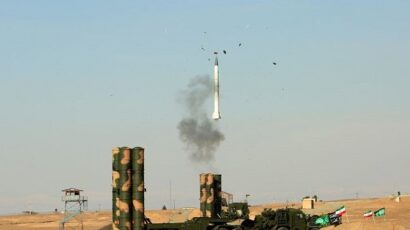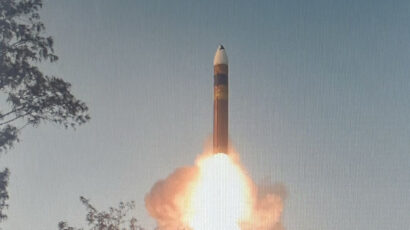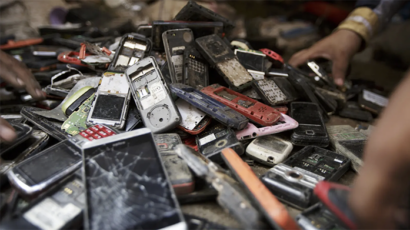Afghanistan: Vietnam all over again
By Hugh Gusterson | December 1, 2009
We don’t know the intimate details of the discussions in President Barack Obama’s recent war councils, so it’s impossible to know what the chess-player-in-chief is thinking as he sends 30,000 more troops to Afghanistan. We only know what he is telling us.
“Today they are ringing the bells; tomorrow they will be wringing their hands,” Sir Robert Walpole.
We don’t know the intimate details of the discussions in President Barack Obama’s recent war councils, so it’s impossible to know what the chess-player-in-chief is thinking as he sends 30,000 more troops to Afghanistan. We only know what he is telling us.
So let’s start with that. Obama says he will tie these troop deployments to Afghan government reform and set a clear date (July 2011) for beginning to draw down the U.S. presence in the country. He has said he intends to win, but defined victory down.
The more people invest in war, the more vindication they seek from it. This is the logic of escalation, the path we have now chosen in Afghanistan. LBJ understood this, and he was broken by it.”
In the month or so it has taken Obama to come to this decision, he has been subjected to intense lobbying by, on the one hand, advocates of escalation who believe that a counterinsurgency campaign can triumph with enough resources and, on the other, by skeptics who fear that Obama is following in President Lyndon B. Johnson’s footsteps and that Vietnam Afghanistan is a rathole into which Obama’s domestic reform agenda, as well as hundreds of U.S. troops, will disappear. Obama is clearly aware of the perils of being LBJ, but he thinks he can avoid them. In fact, in his speech to the nation last night, he explicitly took issue with those who liken Afghanistan to Vietnam.
The generals believe that more U.S. (and Afghan) troops will act like a weight that will, if it is large enough, crush the insurgency. Readers of this column know that I think this model gets the physics of counterinsurgency wrong. (See my September column “Why the War in Afghanistan Cannot Be Won.”) First, there will always be empty space into which the insurgency can move and regroup. If there are too many U.S. troops in Helmand province, the Taliban will lie low there and pop up somewhere else instead. And so, the weight of U.S. force won’t crush the insurgency but displace it–just as all of those U.S. resources devoted to eradicating cocaine trafficking in Latin America have only succeeded in displacing cocaine cultivation and production from one province or country to another. Second, the more U.S. troops there are in Afghanistan, the more provocative incidents and resentment there will be, and this will help the Taliban to recruit. More U.S. troops equals more Taliban recruits. And that equation leads to this escalatory arithmetic: More Taliban looking for people to shoot plus more U.S. troops to be shot at equals more body bags at Dover Air Force Base. This won’t look like victory to the U.S. people.
To make things worse, Obama has given the Taliban an incentive to fight on by declaring a deadline to start exiting Afghanistan. While this may be necessary to quiet the growing ranks of Obama supporters (or should that be former supporters?) disillusioned with the White House’s blank checks to the military, it tells the Taliban that, if they can just hang on until a certain date, they have won.
We have waited for weeks to learn whether or not Obama would accede to Gen. Stanley McChrystal’s copiously leaked demand for more troops. Despite the show of lengthy deliberation, he has. The question now is: What happens at the next decision-point? A few months from now, amidst continuing U.S. casualties, persistent reports of corruption in Hamid Karzai’s government, and more Taliban spectacles of violence, what will Obama say to the military when they tell him they need more time and more troops? A part of me, the part that still wants to believe in Obama, wonders if, in those lengthy sessions in the Situation Room, he made a bargain with the generals that he will do it their way for a while and, regardless of whether the Afghan surge works, the United States will then look for the exit doors. Has he told the military that it just gets one more shot?
But then I think of the tapes I recently heard on Bill Moyers Journal. LBJ secretly taped his conversations about Vietnam with Defense Secretary Robert McNamara, Special Assistant for National Security McGeorge Bundy, and leading members of Congress. Listening to the tapes you hear a man being torn apart in slow motion by conflicting forces. LBJ knows in his bones that more troops will not win the war. But he cannot face being the first U.S. president to declare defeat, and he knows his political enemies will carve him up if he “loses” Vietnam. Sitting at LBJ’s desk, could the silver-tongued Obama find a way in the summer of 2011 to tell the U.S. people that, after two rounds of escalation, they were leaving Afghanistan without the prize they had sought?
It’s hard to escalate a war while defining down its goals. The more people invest in war, the more vindication they seek from it. This is the logic of escalation, the path we have now chosen. LBJ understood this, and he was broken by it. LBJ also understood that when people lose wars, they turn on their leaders. The drama of the Obama presidency is now whether he can avoid that fate.
Together, we make the world safer.
The Bulletin elevates expert voices above the noise. But as an independent nonprofit organization, our operations depend on the support of readers like you. Help us continue to deliver quality journalism that holds leaders accountable. Your support of our work at any level is important. In return, we promise our coverage will be understandable, influential, vigilant, solution-oriented, and fair-minded. Together we can make a difference.
Topics: Columnists















